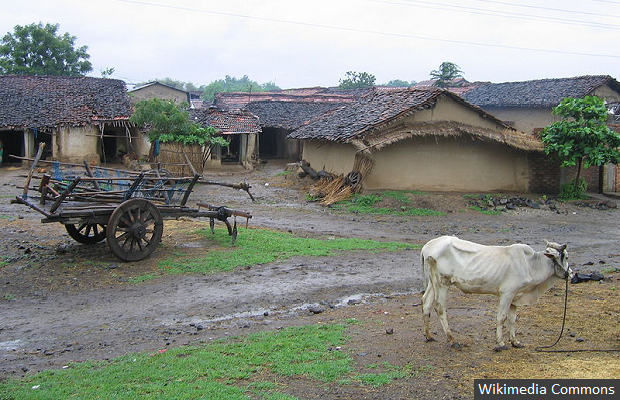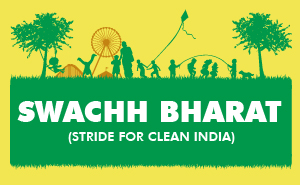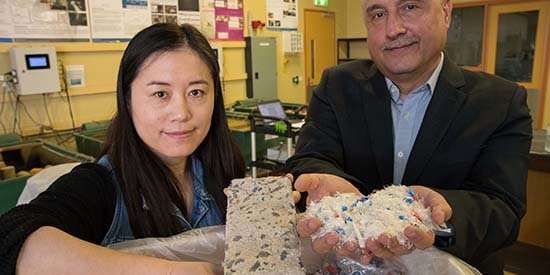Here are excerpts from an online interview that I recently conducted at Ed4MedUS.com. The applicant is an IMG from India [SS], where she talks about her research project during medical school. Look carefully at how she describes her study, the choice of words by the applicant and follow-up questions by me [Dr Ed, the interviewer].
To me, this is an exemplary way of presenting your research study, even if you feel that 'your project is not great'. This post is the first in the series of 2 posts. In the 2nd post, I will describe the conversation about another research project that was completed prior to the applicant’s residency application.
Dr. Ed: I see on your application that you have done some research in med school. Can you describe your research experience?
SS: Yes, I would be glad to. In my third year of medical school, I performed a research survey with the guidance of my professor of community medicine. This was a cross-sectional study, where we wanted to explore the knowledge and practices of waste management in a rural area in Kerala, India. You may have heard of Kerala in India being 'God's own country' but there are many villages in this state. I and four medical students formed a team and we created a survey. We approached 450 households over one and half years where he went to each house in our assigned area of survey and asked the head of the household about demographics, socioeconomic status and education. We then asked a list of questions about waste management that is how were the families handling biodegradable wastes, plastic, electronic and glass materials. We had some very interesting findings and some findings that were concerning.
Dr Ed: Go on. {Following image comes to mind}
SS: Almost all the houses that we surveyed in the village were finished houses and had a toilet. We found that about two-thirds of the households did not practice safe handling of biodegradable wastes and half of the homes did not handle plastic wastes appropriately. Interestingly, three-fourths of the homes handled electronic wastes well by discarding batteries, toys and devices through a collection service. I worked with my colleagues entering the data into an excel file and then we took the help of our professor in doing an SPSS analysis. What was interesting and concerning at the same time is that the waste management practices did not appear different based on educational or socioeconomic status, that is, it did not matter whether the head of the household was educated up to 10th standard or had higher education and whether they were above or below the poverty line.
This study really made me realize that we need to do a better job educating the public on waste management. Incentives for use of technology such as a bio-gas plant or a compost pit located far from a water source may improve waste management practices and reduce pollution. The study helped me learn the importance of careful data collection, timely recording in an excel, SPSS analysis, presenting the data and writing the report.
Dr Ed: Very nice. Is there any similar data available?
SS: I did a literature search and there is very limited data from India. In fact, one study found even worse, that is 90% of households disposing solid wastes inappropriately.
Dr Ed: What should be done next?
SS: The effect of an intervention on waste management practices, such as improving public awareness, should be studied. For example, there is a public health mission going on in India called 'Swachch Bharat' that aims to increasing people's awareness and motivating them to keep their environment clean.
Dr Ed: If you had to redesign the study and had all the resources in the world to do research, what would you do?
SS: [after thinking briefly] I would test the level of pollution in the air and water and study the effect of an educational intervention and an incentive program where each household is rewarded to turn in all the wastes appropriately. I would study the effect of this intervention by retesting the air and water and show a decreased level of pollution.
Dr Ed: Interesting. How will this research experience help you in the future?
SS: The study makes me more aware of how there could be a problem with management of biomedical wastes. For example, when I was observing in Oregon Health Science University, I was concerned about the medication changes and wondered if a patient had a 90-day supply of a medicine and the doctor then changed the medicine due to intolerance, then how would the patient dispose of those unused tablets. If they cannot return the medicines to the medical store, are they dumping it in the toilet? I was glad to see separate medication bins to dispose unused medicines. Also, I visited the local library when I went to visit my cousin and saw prepaid envelopes to mail unused medicines. I did some more reading and found that these medicines are then burned to reduce pollution and prevent damage to water life.
Dr Ed: Uh-huh...
SS: Also when I was rotating in nephrology in Oregon, the attending I rounded with had concerns about the amount of waste generated in dialysis such as water waste, plastic tubes, dialyzer waste, blood waste. We discussed papers where some nephrologists are trying to make dialysis less harmful to the environment. I feel this would be a great quality improvement project in the future.
Dr Ed: Are you going to do this improvement project in residency?
SS: I am not sure about a nephrology project, but in internal medicine residency, I would like to survey the patients and find out what they are doing with their bottles of medicines after the doctor asks them to stop the medicines. For example, when I was rounding in nephrology, I saw that dialysis patients need to take a lot of phosphorus binders. If a dialysis patient is prescribed calcium carbonate 1 tablet 3 times a day with meals, then a 90-day supply means 270 tablets. What happens if after 2 weeks of taking the calcium, the patient has an intolerance to the binder? I would really find this topic to be very interesting and a quality improvement project that could be completed.
Dr Ed: What else did you learn from your research project?
SS: This research project taught me a lot about how important it is to carefully plan every step right from the survey questionnaire, the visits, data collection and storage in excel. My skills in working in a team of medical students, working to finish the assigned work and helping each other out allowed us to complete the study. The project also improved my skills of organizing and presenting data in a form that is easy to understand and with the help of tables and bar graphs. I also learned to collaborate with a biostatistician for the analysis and doing a literature search. As this was a teamwork, we all had different pieces of the report to write and thanks to our perseverance, I am glad that the report turned out very well.
Dr Ed: Did you get any award for this study?
SS: No, I did not. And I am fine with that as my goal was not really to compete with other teams, but to learn the research skills and do more research or quality improvement projects in the future.
Dr Ed: OK, let's move on to the clinical side of things.....
___
You will see that the applicant has done a marvelous job of describing her research project very concisely and demonstrated the ability to critically assess how this helped her be a better physician even if her future goals (or research efforts) are very different from her medical school project. She demonstrated presence of mind by very satisfactorily answering the questions that followed the results of her project.
Preparing yourself for the interview by a careful reflection of your experiences, as in this interview exchange, goes a long long way in improving your chances of being ranked high by the residency program.
The top 10 popular questions will be featured on my next blog posts at https://ed4medllc.blogspot.com/ and the winners will receive a coupon each for a FREE practice interview at Ed4medus.com ! Put those thinking caps on and hurry up!
Photo credit for image on top of post: https://elearningindustry.com/wp-content/uploads/2015/11/10-online-research-tools-every-online-learner-know.jpg
https://archive.indiaspend.com/wp-content/uploads/village_620.png
https://community.data.gov.in/wp-content/uploads/2018/10/swachh-bharat-infographic_Home-300x185-01.jpg
https://scx1.b-cdn.net/csz/news/800/2017/projectusesp.jpg
To me, this is an exemplary way of presenting your research study, even if you feel that 'your project is not great'. This post is the first in the series of 2 posts. In the 2nd post, I will describe the conversation about another research project that was completed prior to the applicant’s residency application.
Dr. Ed: I see on your application that you have done some research in med school. Can you describe your research experience?
SS: Yes, I would be glad to. In my third year of medical school, I performed a research survey with the guidance of my professor of community medicine. This was a cross-sectional study, where we wanted to explore the knowledge and practices of waste management in a rural area in Kerala, India. You may have heard of Kerala in India being 'God's own country' but there are many villages in this state. I and four medical students formed a team and we created a survey. We approached 450 households over one and half years where he went to each house in our assigned area of survey and asked the head of the household about demographics, socioeconomic status and education. We then asked a list of questions about waste management that is how were the families handling biodegradable wastes, plastic, electronic and glass materials. We had some very interesting findings and some findings that were concerning.
Dr Ed: Go on. {Following image comes to mind}
SS: Almost all the houses that we surveyed in the village were finished houses and had a toilet. We found that about two-thirds of the households did not practice safe handling of biodegradable wastes and half of the homes did not handle plastic wastes appropriately. Interestingly, three-fourths of the homes handled electronic wastes well by discarding batteries, toys and devices through a collection service. I worked with my colleagues entering the data into an excel file and then we took the help of our professor in doing an SPSS analysis. What was interesting and concerning at the same time is that the waste management practices did not appear different based on educational or socioeconomic status, that is, it did not matter whether the head of the household was educated up to 10th standard or had higher education and whether they were above or below the poverty line.
This study really made me realize that we need to do a better job educating the public on waste management. Incentives for use of technology such as a bio-gas plant or a compost pit located far from a water source may improve waste management practices and reduce pollution. The study helped me learn the importance of careful data collection, timely recording in an excel, SPSS analysis, presenting the data and writing the report.
Dr Ed: Very nice. Is there any similar data available?
SS: I did a literature search and there is very limited data from India. In fact, one study found even worse, that is 90% of households disposing solid wastes inappropriately.
Dr Ed: What should be done next?
SS: The effect of an intervention on waste management practices, such as improving public awareness, should be studied. For example, there is a public health mission going on in India called 'Swachch Bharat' that aims to increasing people's awareness and motivating them to keep their environment clean.
Dr Ed: If you had to redesign the study and had all the resources in the world to do research, what would you do?
SS: [after thinking briefly] I would test the level of pollution in the air and water and study the effect of an educational intervention and an incentive program where each household is rewarded to turn in all the wastes appropriately. I would study the effect of this intervention by retesting the air and water and show a decreased level of pollution.
Dr Ed: Interesting. How will this research experience help you in the future?
SS: The study makes me more aware of how there could be a problem with management of biomedical wastes. For example, when I was observing in Oregon Health Science University, I was concerned about the medication changes and wondered if a patient had a 90-day supply of a medicine and the doctor then changed the medicine due to intolerance, then how would the patient dispose of those unused tablets. If they cannot return the medicines to the medical store, are they dumping it in the toilet? I was glad to see separate medication bins to dispose unused medicines. Also, I visited the local library when I went to visit my cousin and saw prepaid envelopes to mail unused medicines. I did some more reading and found that these medicines are then burned to reduce pollution and prevent damage to water life.
Dr Ed: Uh-huh...
SS: Also when I was rotating in nephrology in Oregon, the attending I rounded with had concerns about the amount of waste generated in dialysis such as water waste, plastic tubes, dialyzer waste, blood waste. We discussed papers where some nephrologists are trying to make dialysis less harmful to the environment. I feel this would be a great quality improvement project in the future.
Dr Ed: Are you going to do this improvement project in residency?
SS: I am not sure about a nephrology project, but in internal medicine residency, I would like to survey the patients and find out what they are doing with their bottles of medicines after the doctor asks them to stop the medicines. For example, when I was rounding in nephrology, I saw that dialysis patients need to take a lot of phosphorus binders. If a dialysis patient is prescribed calcium carbonate 1 tablet 3 times a day with meals, then a 90-day supply means 270 tablets. What happens if after 2 weeks of taking the calcium, the patient has an intolerance to the binder? I would really find this topic to be very interesting and a quality improvement project that could be completed.
Dr Ed: What else did you learn from your research project?
SS: This research project taught me a lot about how important it is to carefully plan every step right from the survey questionnaire, the visits, data collection and storage in excel. My skills in working in a team of medical students, working to finish the assigned work and helping each other out allowed us to complete the study. The project also improved my skills of organizing and presenting data in a form that is easy to understand and with the help of tables and bar graphs. I also learned to collaborate with a biostatistician for the analysis and doing a literature search. As this was a teamwork, we all had different pieces of the report to write and thanks to our perseverance, I am glad that the report turned out very well.
Dr Ed: Did you get any award for this study?
SS: No, I did not. And I am fine with that as my goal was not really to compete with other teams, but to learn the research skills and do more research or quality improvement projects in the future.
Dr Ed: OK, let's move on to the clinical side of things.....
___
You will see that the applicant has done a marvelous job of describing her research project very concisely and demonstrated the ability to critically assess how this helped her be a better physician even if her future goals (or research efforts) are very different from her medical school project. She demonstrated presence of mind by very satisfactorily answering the questions that followed the results of her project.
Preparing yourself for the interview by a careful reflection of your experiences, as in this interview exchange, goes a long long way in improving your chances of being ranked high by the residency program.
Before you go: Here's your golden opportunity to have your voice heard! Write down your ONE question regarding your US residency program application, personal statement, interviews or anything that has been bothering you and keeping you up at night. You can reply at the end of this post or message at my Facebook page or email me at varun@ed4medus.com
The top 10 popular questions will be featured on my next blog posts at https://ed4medllc.blogspot.com/ and the winners will receive a coupon each for a FREE practice interview at Ed4medus.com ! Put those thinking caps on and hurry up!
Photo credit for image on top of post: https://elearningindustry.com/wp-content/uploads/2015/11/10-online-research-tools-every-online-learner-know.jpg
https://archive.indiaspend.com/wp-content/uploads/village_620.png
https://community.data.gov.in/wp-content/uploads/2018/10/swachh-bharat-infographic_Home-300x185-01.jpg
https://scx1.b-cdn.net/csz/news/800/2017/projectusesp.jpg





This is a brilliant blog! I'm very happy with the comments!.. medicine meaning in urdu
ReplyDelete